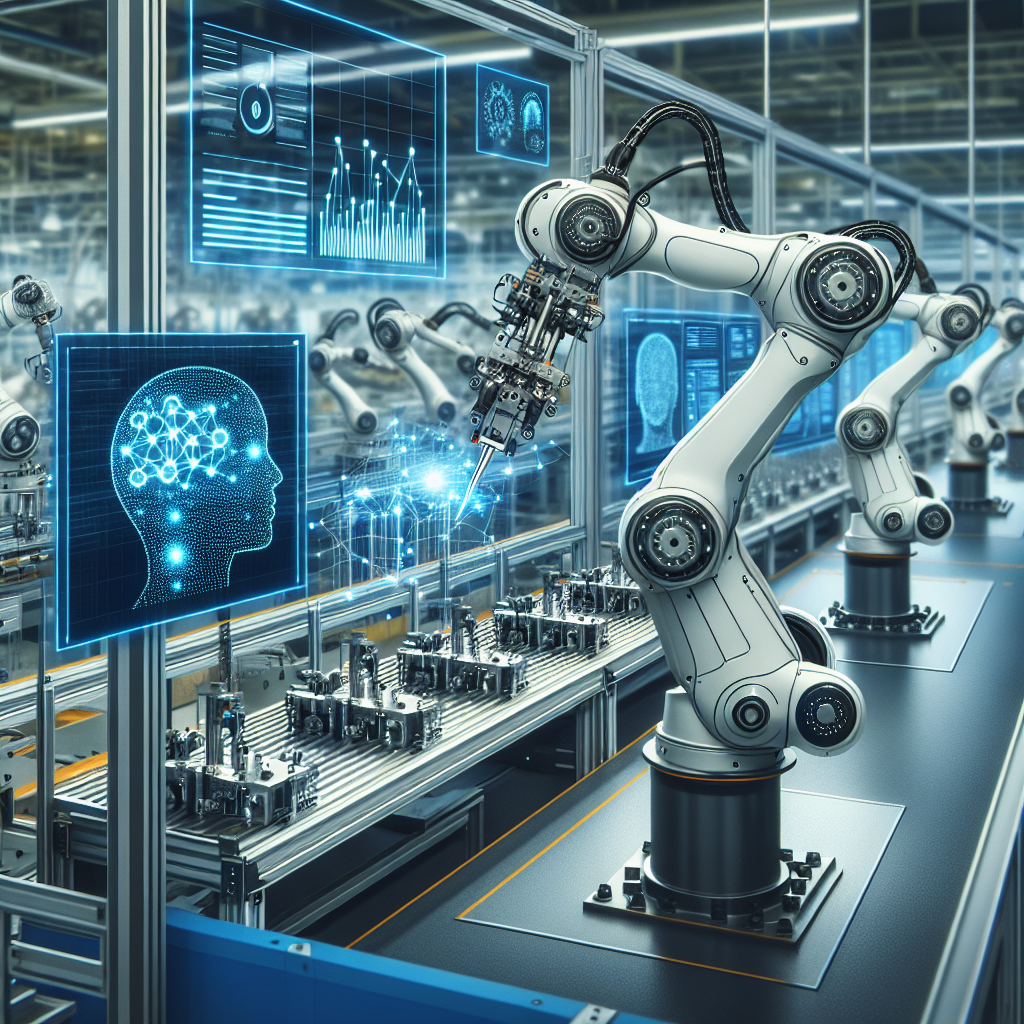In recent years, the manufacturing industry has seen a significant rise in the use of Artificial Intelligence (AI) and Automated Inspection technologies. These advancements have revolutionized the way products are inspected and quality control is performed in manufacturing facilities around the world. AI and Automated Inspection have brought about increased efficiency, accuracy, and cost savings, making them essential tools for modern manufacturing processes.
AI in Manufacturing
Artificial Intelligence has transformed the manufacturing industry by enabling machines to perform tasks that typically require human intelligence. In the context of manufacturing, AI is used to analyze and interpret data, make decisions, and even learn from past experiences to improve processes. AI technologies such as machine learning, deep learning, and neural networks are being used to enhance various aspects of manufacturing, including production, quality control, and supply chain management.
One of the key applications of AI in manufacturing is Automated Inspection. Traditionally, product inspection in manufacturing facilities was a manual and time-consuming process, often prone to human error. With the introduction of AI-powered Automated Inspection systems, manufacturers can now perform inspections faster, more accurately, and at a lower cost.
Automated Inspection in Manufacturing
Automated Inspection systems use AI algorithms and advanced sensors to inspect products for defects, inconsistencies, and quality issues. These systems can detect even the smallest defects that may go unnoticed by human inspectors, leading to improved product quality and reduced waste. Automated Inspection systems are capable of performing a wide range of inspections, including dimensional measurements, surface defect detection, and assembly verification.
One of the key benefits of Automated Inspection in manufacturing is its speed and efficiency. These systems can inspect products at a much faster rate than human inspectors, leading to increased production output and reduced inspection time. Additionally, Automated Inspection systems can operate 24/7, allowing manufacturers to perform inspections continuously without the need for breaks or shifts.
Another advantage of Automated Inspection is its accuracy and consistency. AI algorithms can analyze large amounts of data quickly and accurately, leading to more reliable inspection results. This helps manufacturers ensure that only high-quality products are shipped to customers, reducing the risk of product recalls and customer complaints.
Furthermore, Automated Inspection systems can be easily integrated into existing manufacturing processes, making them a cost-effective solution for manufacturers looking to improve their quality control processes. These systems can be customized to meet the specific requirements of different industries and products, making them versatile tools for a wide range of manufacturing applications.
FAQs about AI and Automated Inspection in Manufacturing
Q: How does AI-powered Automated Inspection work?
A: AI-powered Automated Inspection systems use advanced sensors to capture data from the products being inspected. This data is then analyzed by AI algorithms, which can detect defects, inconsistencies, and quality issues. The AI algorithms learn from past inspection results to improve their accuracy over time.
Q: What are the benefits of using Automated Inspection in manufacturing?
A: Automated Inspection systems offer several benefits, including increased speed and efficiency, improved accuracy and consistency, and cost savings. These systems can help manufacturers enhance their quality control processes and ensure that only high-quality products are shipped to customers.
Q: Can Automated Inspection systems be customized for different industries and products?
A: Yes, Automated Inspection systems can be easily customized to meet the specific requirements of different industries and products. Manufacturers can work with AI and automation experts to develop tailored solutions that address their unique inspection needs.
Q: Are Automated Inspection systems expensive to implement?
A: While the initial investment in Automated Inspection systems may be higher than traditional inspection methods, the long-term cost savings and benefits outweigh the upfront costs. Automated Inspection systems can help manufacturers reduce waste, improve product quality, and increase production output, resulting in a positive return on investment.
Q: How can manufacturers benefit from AI and Automated Inspection technologies?
A: Manufacturers can benefit from AI and Automated Inspection technologies by improving their quality control processes, reducing waste, increasing production output, and enhancing overall efficiency. These technologies can help manufacturers stay competitive in the global market and meet the growing demands of customers for high-quality products.
In conclusion, AI and Automated Inspection technologies have transformed the manufacturing industry by enhancing quality control processes, increasing efficiency, and reducing costs. These technologies offer numerous benefits to manufacturers, including improved product quality, increased production output, and reduced waste. As manufacturers continue to adopt AI and Automated Inspection systems, they will be better equipped to meet the evolving demands of the market and deliver high-quality products to customers.

